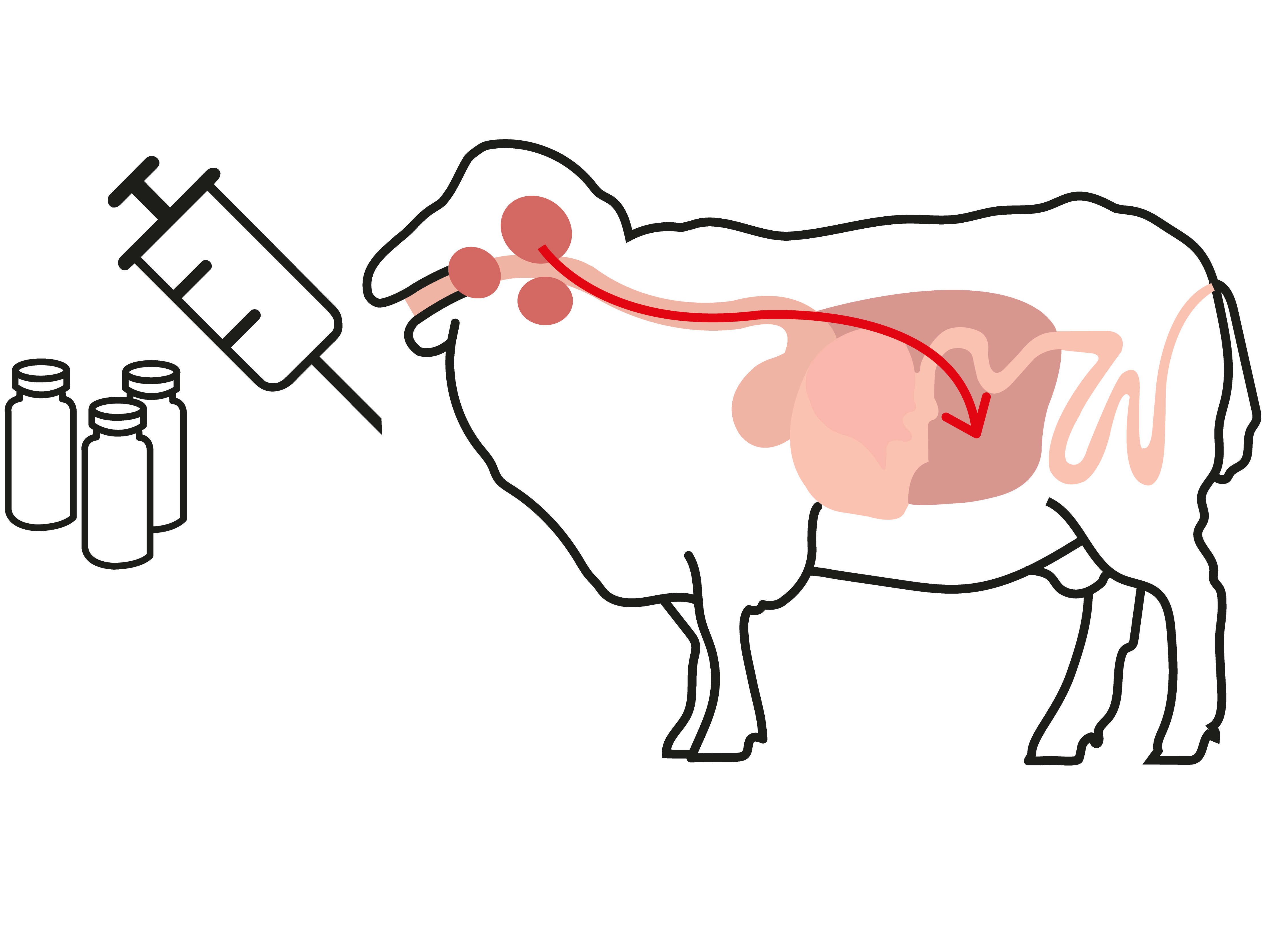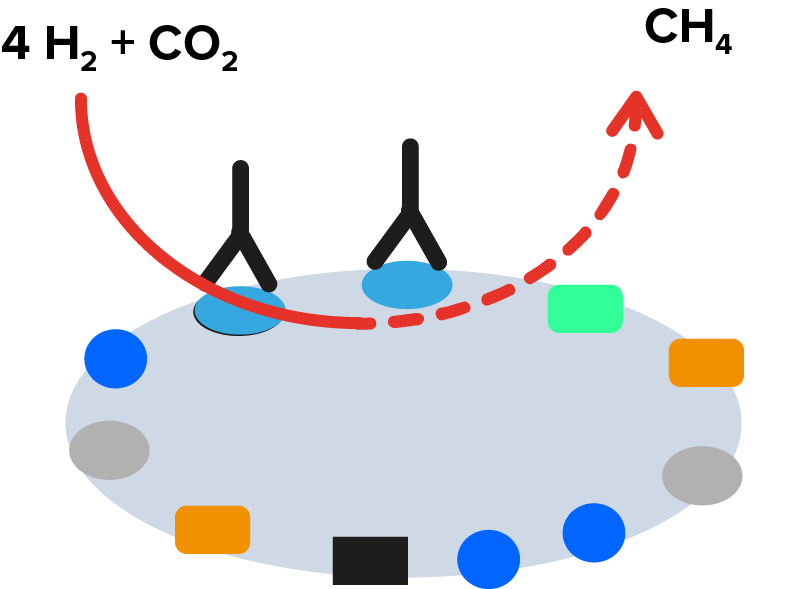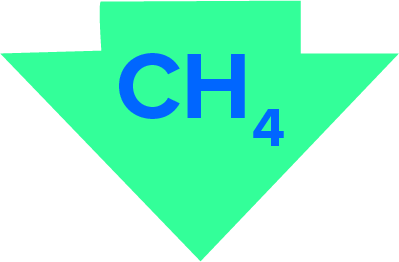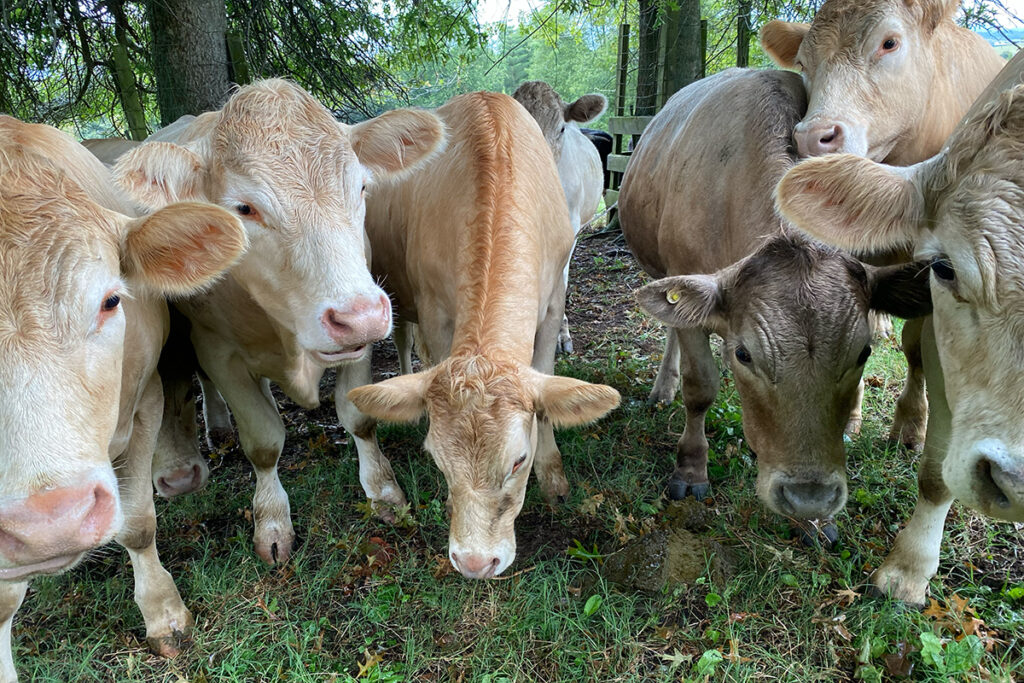Pioneering vaccines.
Sustainable agriculture.
CHALLENGE
Livestock are responsible for almost 3 billion tonnes of CO2 equivalent emissions
This amounts to around 5% of global greenhouse gas emissions
This is more than the total emissions from aviation and shipping combined
Methane emissions from livestock are one of the largest sources of greenhouse gas emissions worldwide.
Methane is a potent greenhouse gas that has 28–36 times the impact of carbon dioxide over a 100-year period.
Although carbon dioxide persists for centuries, methane largely breaks down after around 12 years – meaning that methane affects the climate over a much shorter period.
Reducing methane emissions is our strongest lever to slow global warming over the next 25 years and complements necessary efforts to reduce carbon dioxide according to UN Environment.

OUR SOLUTION
Our vaccine is designed to significantly reduce methane emissions from ruminant animals – giving farmers the freedom to farm productively while meeting the growing demand for climate-friendly products.
This affordable, effective solution is being developed to work across all farm types and ruminant animals, including beef and dairy cattle, sheep, goats, deer, and buffalo.
Methane is produced during ruminant animal digestion in a part of the stomach called the rumen. Here, microbes known as methanogens help break down plant material, releasing methane gas as a by-product, which is then expelled into the atmosphere.
Our methane vaccine aims to stimulate the animal’s immune system by producing antibodies in its saliva. Once swallowed, these antibodies target and suppress specific methanogens in the stomach, inhibiting their growth without affecting the animal’s health or digestion.
The vaccine will be a safe and adaptable tool that can be scaled globally, enabling equitable, widespread adoption to accelerate the urgent reduction of greenhouse gas emissions from animal agriculture.

The vaccine produces antibodies in saliva which are transported to the rumen

Antibodies bind to the targets on the surface of the methanogens in the rumen

Antibodies reduce methanogen growth in the rumen and the amount of methane emitted
OUR STORY
New Zealand has a proud legacy of innovation in this space. For more than 15 years, our top scientists have been working on a vaccine to significantly reduce methane production in ruminant animals, putting us at the cutting edge of this technology.
Since 2007, AgResearch has spearheaded this research, with longstanding support and funding from multiple organisations including the Pastoral Greenhouse Gas Research Consortium (PGGRC) and New Zealand government (MBIE and MPI) through the New Zealand Agricultural Greenhouse Gas Research Centre (NZAGRC).
Over this time, the team has delivered groundbreaking scientific and technological advancements, laying the foundations for a vaccine that is safe, effective and affordable.
The name Lucidome is derived from the words “Lucido” meaning light, bright, brilliant, which is core to the company’s mission around innovation and discovery, and “biome” due to the focus on providing solutions for the ruminant microbiome at a global scale.

AgriZeroNZ supported further vaccine research with NZAGRC from 2023. AgriZeroNZ then set up Lucidome Bio in 2024, bringing together New Zealand’s vaccine technology, intellectual property, team, and funding into a new venture to help deliver a world-first solution to market.
AgResearch will continue to provide critical expertise, and access to research facilities, with scientists being seconded to Lucidome Bio. The Pastoral Greenhouse Gas Research Consortium is a shareholder in Lucidome Bio alongside AgriZeroNZ.
Breakthroughs pioneered by our scientists:
- We can harness the immune system of ruminants to target methanogens and reduce production of methane
- Antibodies produced by vaccination are long-lived and can be boosted
- Methanogen populations in the rumen are similar worldwide
- Vaccination produces enough antibodies in saliva to coat all methanogens in the rumen
- Antibodies can stay active in the rumen for long enough to be effective
- Vaccine antigens can induce antibodies that bind to their specific methanogen protein targets
- We can direct antibody responses to key targets on the surface of methanogens




